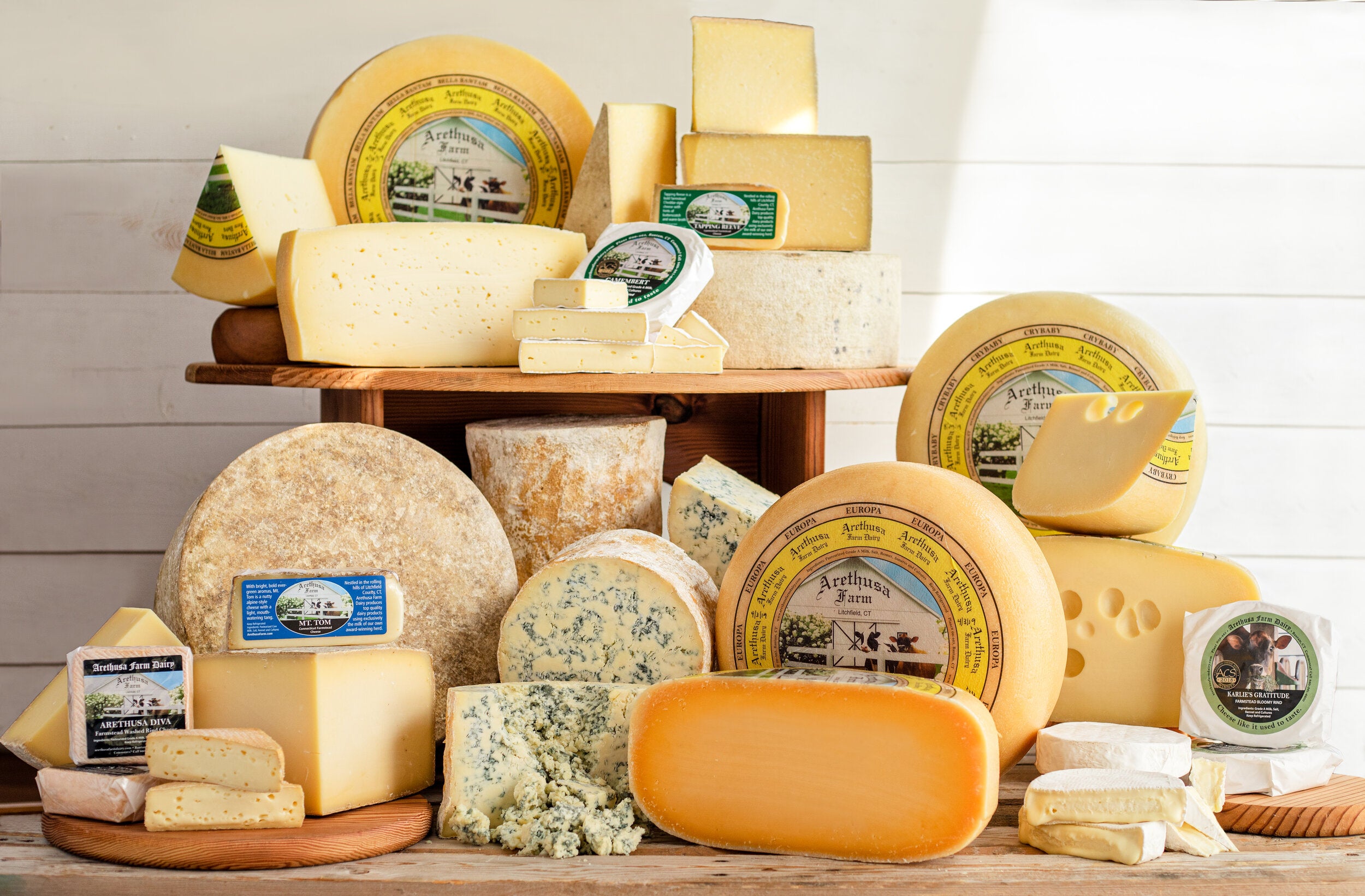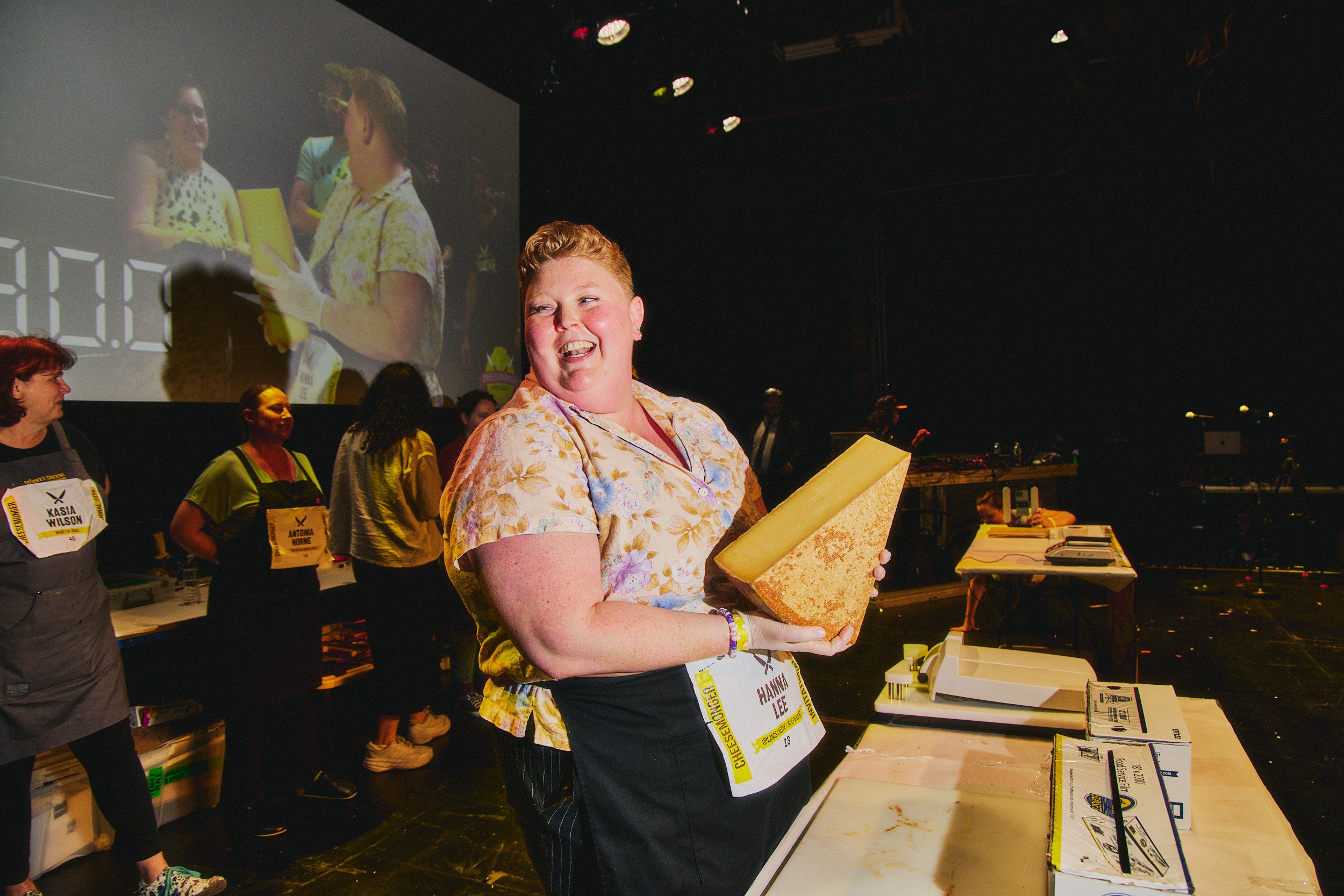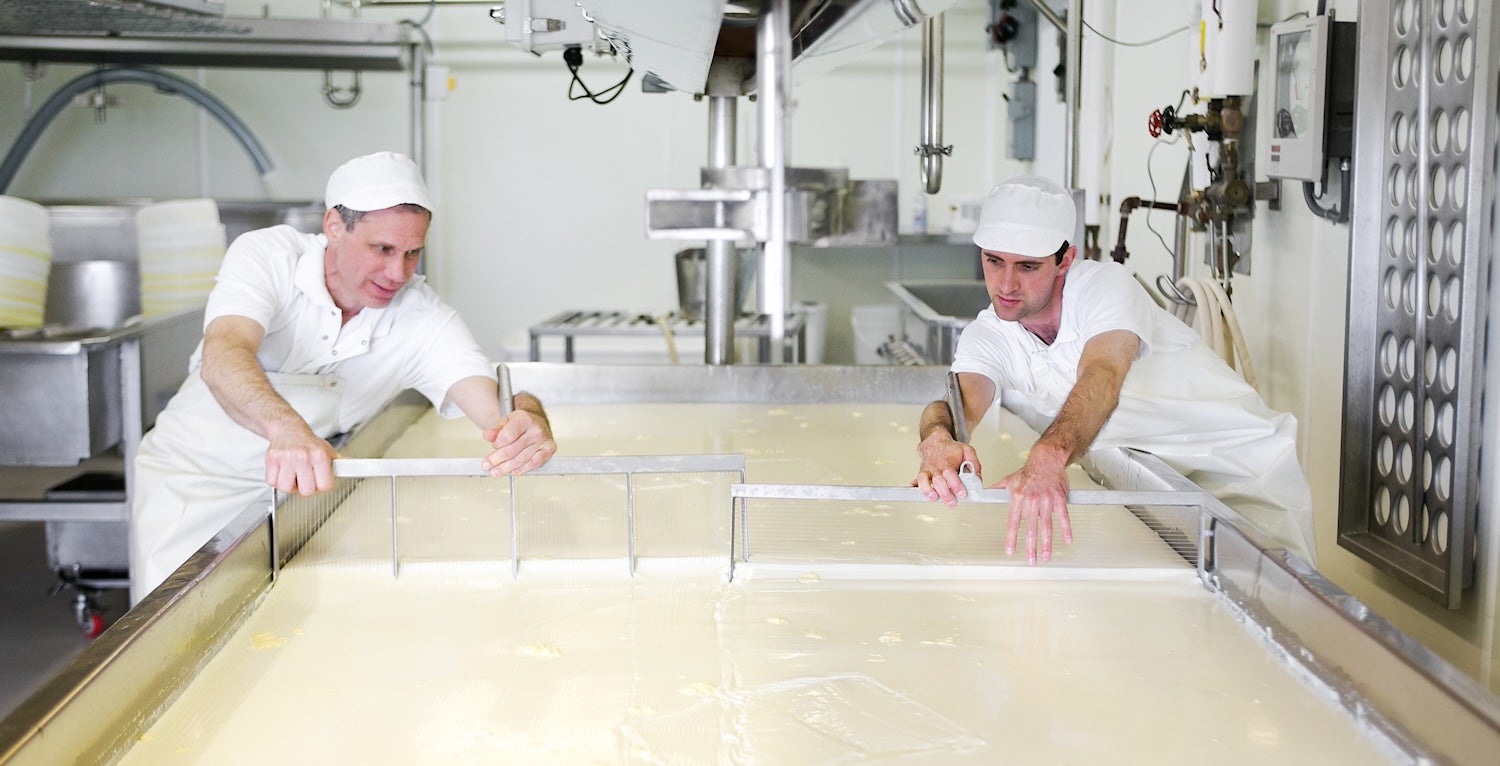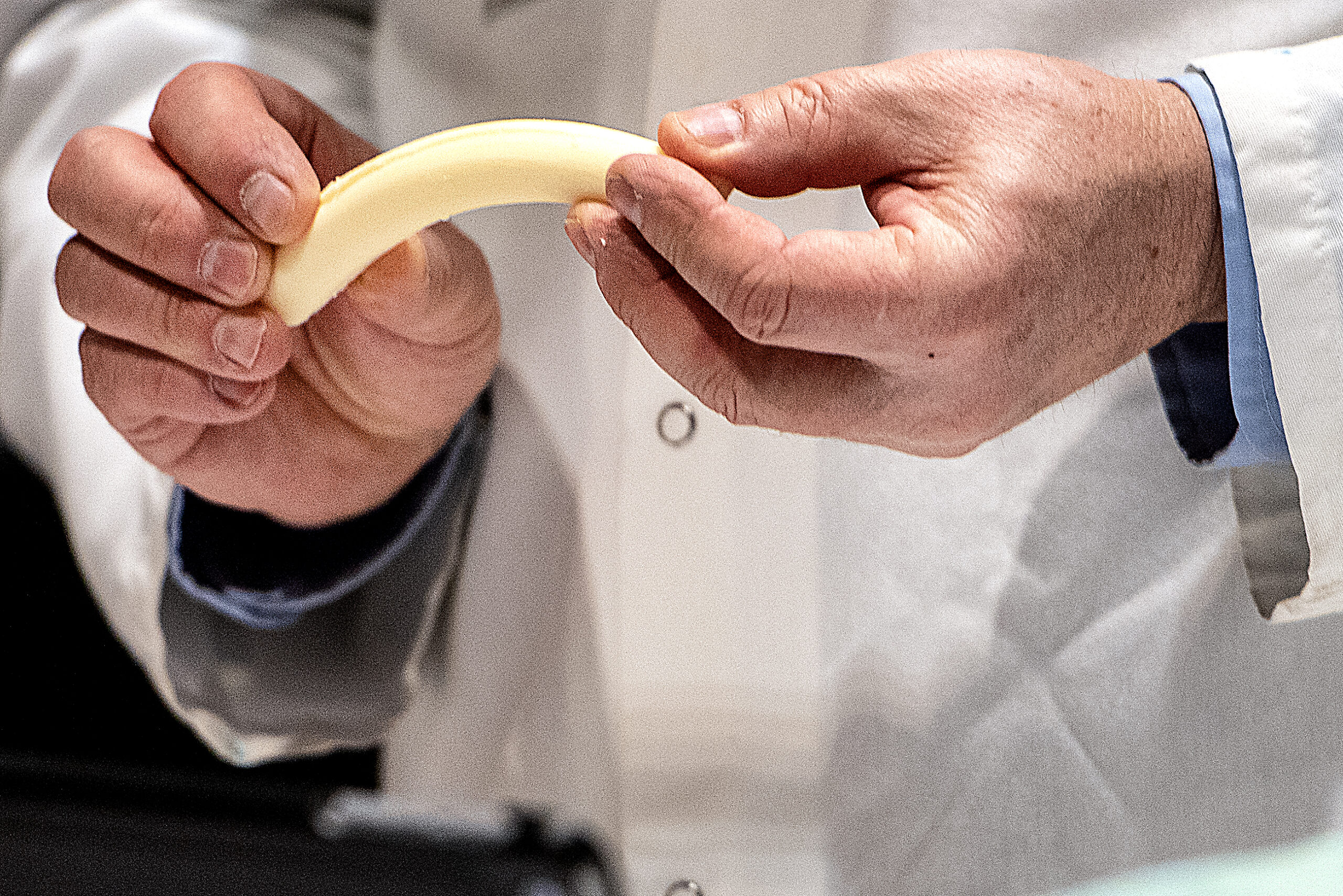Eric Schmid grew up in Monticello and landed his first cheese-making job near Browntown. Now, the Wisconsin native is the year’s U.S. Cheese Champion.
Schmid worked for Wisconsin cheese producers for nearly a decade before moving to Connecticut to become head cheesemaker at Arethusa Farm, home to about 300 cows.
At the recent U.S. Championship Cheese Contest in Green Bay, Schmid’s team submitted an aged gouda called Europa. The artisan cheese features notes of toasted nuts and butterscotch. It scored 98.739 out of 100 and beat out 2,248 entries from 35 states.
News with a little more humanity
WPR’s “Wisconsin Today” newsletter keeps you connected to the state you love without feeling overwhelmed. No paywall. No agenda. No corporate filter.
Schmid joined Wisconsin Public Radio’s “Central Time” to talk about cheese-making, Europa and his Wisconsin roots.
The following was edited for clarity and brevity.
Rob Ferrett: Talk about what makes someone a good cheesemaker.
Eric Schmid: Patience and attention to detail. You have to have the will to keep learning. You can talk to any cheesemaker across the country, and you never stop learning. What really has kept me going is that problem-solving aspect with cheese. There’s always something to solve.
RF: Tell us about Europa. What ended up making it the best cheese in the country?
ES: All great cheese starts with great milk, and you really got to give it out. (I) give props to the dairy farmers in Litchfield County, Connecticut. They have great farming practices. They (have) really good herd management. You can’t beat grass-fed milk out here.
RF: That initial milk quality really does pay off in the end?
ES: Milk quality is always No. 1. If you’re making bread (and) you’re starting off with bad flour, you’re not going to have a great sourdough starter. If you don’t have the flavor there, if you don’t have the good quality ingredients, you’re not going to get a good quality product. Tip of the hat to Connecticut farmers on that one, especially Agatha’s Farm Dairy with their farming practices.
RF: You’re in Connecticut now. You’ve got a pretty, pretty strong Wisconsin connection. Could you tell us about your upbringing when it comes to making cheese here in the state?
ES: I was out of high school for almost a year. I needed a job. The first cheese factory I worked at was Chula Vista Cheese outside of Browntown, Wisconsin. That’s really the starting point.
When I got into the commodity side of things, the whole process really, really interested me. When I was 19, I was actually making mead at home. Fermentation always was a surprising science to me just because it naturally occurs in the environment.
When I was 23, I moved out to the state of Oregon and worked out on the coast to milk cows into the vat and made cheese. I milked the cow. I did the whole thing. That really gave me the appreciation for artisan cheese.
I do want to say, this is a huge win for the state of Connecticut, for dairymen all across Connecticut. It’s also a huge win for artisan cheese, because it’s handmade, it’s hand flipped. There’s no robots here. It’s people coming in everyday taking care of this cheese in a cellar. It is a huge win.
RF: I understand you entered this Europa and aged gouda in an earlier contest?
ES: This Europa has taken multiple “Best of Class.” There’s a cheese contest in the New England area called the Big E. It’s big like the Wisconsin State Fair. It’s up in Massachusetts. This cheese actually took “Best in Show” at the Big E.
RF: Talk about the history of Dutch gouda. What kind of tradition were you tying into with Europa?
ES: It is a traditional Dutch gouda recipe. Aged gouda has always been one of my favorite cheeses. Just the way it’s sweet, it’s (caramel-like), it’s roasty. Then, you have tyrosine development (when cheese crystals form). Tyrosine development only occurs on a well-aged and well-made piece of cheese. It had all that and it quickly became one of my favorite cheeses here and it’s traditional. We’re cooking with water. It’s a wash curd-style cheese. Instead of using our steam jacket, we’re actually removing whey, which is … doing two different things. You’re removing part of the food, which is lactose that’s in the way. Then you’re adding water, which is sweetening up that curd. Then, you’re actually providing a heat source for you to kickstart that lactic acid bacteria to start fermenting.
RF: You’ve conquered aged gouda. Do you have an aspirational cheese to make next?
ES: I’ve been partial to clothbound cheddars. I know everyone kind of has a clothbound cheddar nowadays. One of the top (in) this year’s U.S. championship was made by Redhead Creamery in Minnesota. They have a great clothbound cheddar. That’s one that’s in my sights. We currently do not make a clothbound cheddar. We make cheddar, but we actually just butter it and it’s a natural, rinded cheddar. But, that would probably be the next cheese.
Wisconsin Public Radio, © Copyright 2026, Board of Regents of the University of Wisconsin System and Wisconsin Educational Communications Board.






